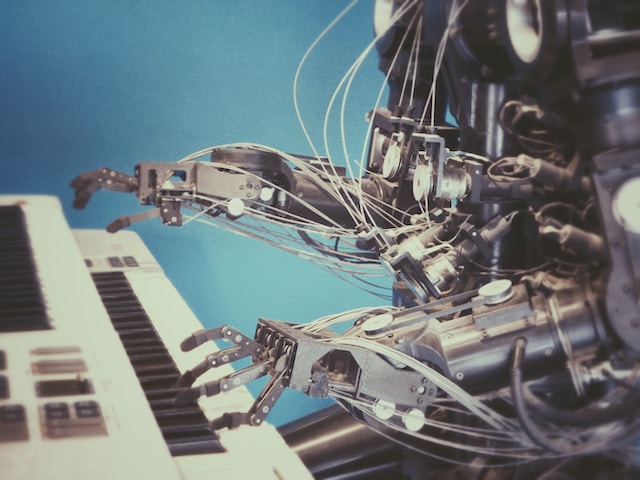Introduction
Artificial intelligence (AI) is reshaping the world, including the music industry. AI music generators can now create music indistinguishable from human-made compositions. However, this advancement has brought forth crucial questions concerning copyright laws. Who owns the copyright to AI-generated music, and how can copyright law adapt to protect the rights of creators and copyright holders in this AI-driven era?
Challenges to Traditional Copyright Law
Traditional copyright law revolves around human authorship. To gain copyright protection, a work must have a human author. Yet, AI music generators craft music without human intervention. This raises the fundamental issue of copyright ownership regarding AI-generated music.
One perspective argues that copyright for AI-generated music should belong to the programmer who created the AI music generator. After all, it is the programmer who devised the code enabling the AI to function. However, this view grants programmers significant control over the music generated, which raises concerns.
Another viewpoint suggests that copyright for AI-generated music should go to the user who provides creative prompts to the AI music generator. Users contribute their creative vision, but it’s challenging to determine the extent of this input required to claim copyright ownership.
Implications for Copyright Holders and Creators
AI music presents a dichotomy for copyright holders and creators. It may jeopardize copyright holders by simplifying music replication and unauthorized distribution. Conversely, AI music offers fresh opportunities, enabling innovative music creation and personalized recommendations for users.
Proposed Solutions
To tackle the challenges posed by AI music, several solutions are worth exploring:
- Amend Copyright Law: One approach involves amending copyright law to cater to AI-generated music, potentially creating a new category of copyright protection for AI-generated works.
- Develop New Licensing Models: Innovative licensing models tailored to AI music could be devised. For instance, copyright holders might license their music to AI music generators for a fee, ensuring benefits for both parties while safeguarding exclusive rights.
Conclusion
AI music is a rapidly evolving technology poised to transform the music industry. Nevertheless, it presents intricate challenges to copyright law. To harness the potential of AI music while safeguarding creative and copyright interests, adapting copyright laws and developing novel licensing models that align with the unique aspects of AI music is essential.

